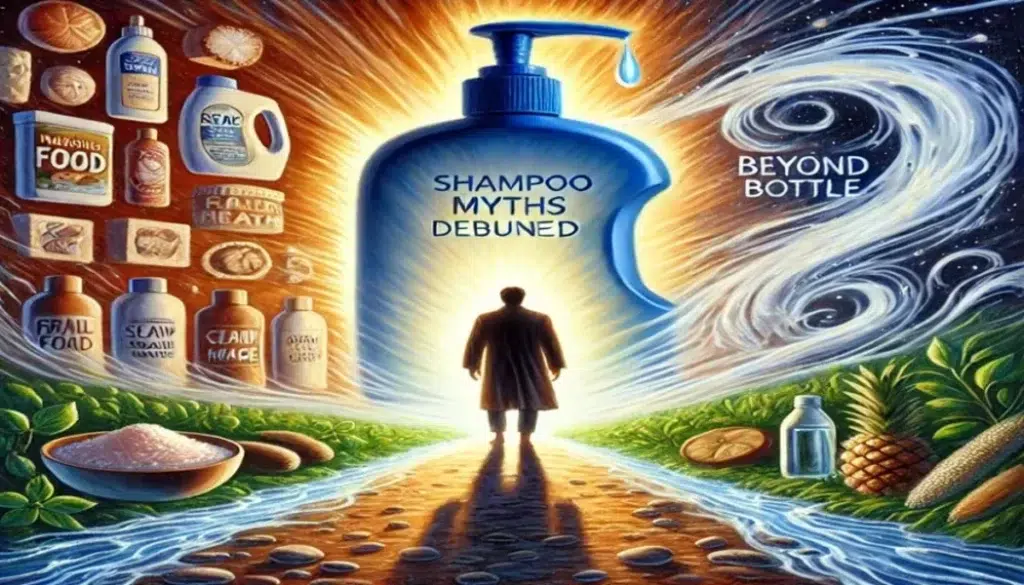Do you blame your family tree for your thinning hair? That’s just part of the picture! Sure, genes set the stage—but your lifestyle decides how the show unfolds. Genetics may increase the chances of hair loss, but they don’t write the ending. Think of it like having a map: genes mark the route, but the path you take is entirely up to you.
Let’s talk about everyday habits that often go unnoticed. Diet, for instance. It’s not just about keeping your waistline in check—it’s the foundation of strong, healthy hair. Foods rich in antioxidants and vitamins can work against genetic predispositions and support healthy follicle function.

Stress is another major player. High stress levels can amplify those hair loss genes and push your strands into retreat mode. Practicing meditation or staying active can help reroute that path entirely. And don’t underestimate the power of good sleep—catching those Z’s helps your system reset and regenerate.
Environmental factors like pollution can also flip genetic switches. Think of them as grime clogging up the machinery. Minimizing exposure whenever possible—both in your surroundings and on your scalp—can make a big difference.
In the end, being informed is your best tool. Knowledge is power, right? Instead of accepting “it’s in my genes” as your fate, focus on what you can actually control. By managing factors like stress, nutrition, and environmental exposure, you can outsmart your DNA and take the reins of your hair health.
💡 At HairGrowGenius, we dive deep into the science so you don’t have to. Our goal is to give you clear, objective advice—so you can take back control of your hair, one strand at a time.
🧴 Shampoo Myths Debunked: Beyond the Bottle
Ever found yourself staring at a shelf full of shampoos, hoping one of them holds the magic cure? Spoiler alert: it doesn’t. The idea that “the right shampoo will stop hair loss” is a myth that just won’t die. Let’s untangle it once and for all.
Shampoos are made to clean the scalp—not to reverse hair loss. They rinse away dirt, excess oil, and maybe a rough day, but they aren’t miracle potions for your follicles. As tempting as it is to believe in instant fixes, trust me—consistency and patience will take you further than any bottle ever will.

Understanding the label is more useful than chasing shiny marketing claims. Look for ingredients like keratin, biotin, or niacin. These support scalp health, which is important, but they’re just one part of a much bigger toolbox. Remember: shampoos are the side characters, not the stars of the show.
Scalp care goes beyond what’s in the bottle. Regular washing, gentle massages, and even a refreshing cold rinse can all make a difference. Also, ditch the harsh chemicals and sulfates—they strip your scalp of natural oils that are essential for hair health.
A well-chosen shampoo can complement your routine, but the real victory over hair loss comes from a well-rounded approach. Diet, stress management, and daily habits will always have more impact than a “miracle” formula. So choose wisely—but don’t place all your hopes in the bottle.
💡 At HairGrowGenius, we help you separate marketing noise from meaningful choices—because your scalp deserves more than empty promises.
😰 Stress: The Unseen Thief of Hair
Stress might just be public enemy number one when it comes to hair loss. It often slips under the radar, but chronic stress is basically the silent thief robbing your strands. Life gets busy—we get it. But ignoring the effects of stress on your hair could be a major misstep.
When you’re under stress, your body releases cortisol—the main villain in this hair loss saga. Elevated cortisol levels disrupt the natural hair growth cycle, prolonging the resting phase and pushing more hairs into the shedding stage. It’s like your follicles are clocking out early.

Finding ways to manage stress isn’t just about peace of mind—it’s about hair regrowth, too. Meditation is one solid tool for keeping cortisol in check. Just a few minutes a day can help reset your stress centers and slow down the hormonal chaos.
Exercise isn’t just about burning calories. It’s one of the best stress-busters out there. Whether it’s yoga, running, or a good old-fashioned walk in the park, regular movement helps your body (and your scalp) breathe easier.
Don’t skimp on sleep, either. A proper night’s rest is like hitting the refresh button—not just for your mind, but for your hair. Sleep hygiene habits like keeping a consistent bedtime or winding down before bed can help lower stress and nourish your hair from the inside out.
Prioritizing stress management isn’t just about inner peace—it’s something your hair will thank you for with fuller, shinier strands.
💡 At HairGrowGenius, we know it’s not just what’s on your head—but what’s on your mind. That’s why we bring you real solutions backed by science and common sense.
🥗 Rethinking Nutrition: Eating for Hair Health
If you’re wondering what’s affecting your hair, it might be time to take a closer look at your kitchen. Have you ever considered how directly your diet impacts your roots? Believing that food doesn’t matter is one of the biggest misconceptions—because what you eat literally builds your hair.
Protein is the big deal here. Your hair is made of keratin, a type of protein, so a protein-deficient diet can weaken your strands and slow down growth. Lean meats, fish, legumes—they’re not just good for your body; they’re fuel for your follicles.
Iron is another powerhouse nutrient your hair craves. A deficiency can lead to hair loss since iron helps red blood cells carry oxygen to the follicles. Foods like spinach and red meat are iron-rich allies you’ll want on your plate.
Then there are healthy fats. Omega-3s—found in salmon, flaxseeds, and walnuts—hydrate the scalp and strengthen hair, potentially reducing breakage. A little good fat goes a long way.

Let’s not forget vitamins and minerals. Biotin, zinc, and vitamin D play key roles in keeping your hair growth cycles smooth and steady. If you’re not getting enough from food, supplements can help—but choose wisely and prioritize real food sources whenever possible.
Don’t underestimate how much your plate impacts your hair. Adjusting your diet is one of the most actionable and powerful steps you can take toward stronger, healthier strands.
💡 At HairGrowGenius, we believe nutrition is the foundation of hair health—and we’re here to guide you with real, research-backed insights. Your follicles deserve it.
⚖️ Busting the Noise: Internet Myths vs. Evidence
The internet is overflowing with advice on hair loss—but not all of it deserves your trust. The myth that “everything online is true” can lead you down a frustrating path of false hopes and wasted time. In a world of miracle cures, secret serums, and overnight fixes, separating fact from fiction has never been more important.
Misinformation spreads fast. One viral video or flashy headline can convince thousands to chase treatments that have zero scientific backing. It’s easy to get pulled in by dramatic testimonials or before-and-after photos, but these rarely tell the full story.

Reliable advice is built on more than anecdotes—it’s built on evidence. Scientific studies, dermatologists, trichologists, and healthcare professionals offer the kind of guidance that doesn’t just sound good—it holds up. Look for sources that cite studies, explain mechanisms, and treat you like someone capable of understanding real solutions.
A healthy dose of skepticism is your best defense. Ask: Who is behind this claim? Is there any research to support it? Are they selling something? The more critical your thinking, the better your choices for long-term hair health.
At the end of the day, navigating through the noise is about taking back control. You don’t need magic—you need clarity, honesty, and a partner that has your best interest at heart.
💡 At HairGrowGenius, we research thoroughly and speak to you with integrity. Because your hair—and your trust—deserve nothing less.
Stay with us — the best is yet to come.
By following our advice, you’re doing the most you can for your hair.
Be the first to know when we publish new guides, tests, and proven strategies for stronger, healthier hair.
👉 Visit the About Me page to learn more about my journey, mission, and why helping people with hair health is so personal to me.
Want healthier, stronger hair? Discover 8 science-backed habits that protect your scalp and boost natural growth. Get your free PDF guide today!
Disclaimer: This article is for informational purposes only and is not a substitute for professional medical advice. Sensitive claims are supported with scientific references, and full product details can always be found on the official websites of the respective manufacturers or distributors.
Some links in this article are affiliate links. If you choose to make a purchase through them, I may earn a small commission at no extra cost to you — helping me keep HairGrowGenius running. Thank you for your support!

❓ FAQ: Hair Loss Myths — What’s True and What’s Not?
🧬 Is hair loss always genetic?
No. While genetics are a major factor, hair loss can also be triggered by stress, illness, poor diet, medications, and hormonal changes.
🧢 Does wearing hats cause hair loss?
No. Hats don’t block follicles or “suffocate” the scalp. Hair loss is not caused by external pressure from headwear, unless it’s causing extreme tension or friction.
🛁 Does frequent washing make hair fall out?
Nope. Washing removes excess oil and buildup. What people see in the drain is mostly hair that was already in the shedding phase — not caused by the shampoo.
🧴 Can hair loss shampoos alone fix baldness?
Not likely. They can support scalp health and reduce breakage, but for true regrowth, you’ll need treatments that address the root cause — like DHT blockers, minoxidil, or supplements.
🧾 Last updated: June 2025 based on trichology and dermatology insights.


Leave a Reply